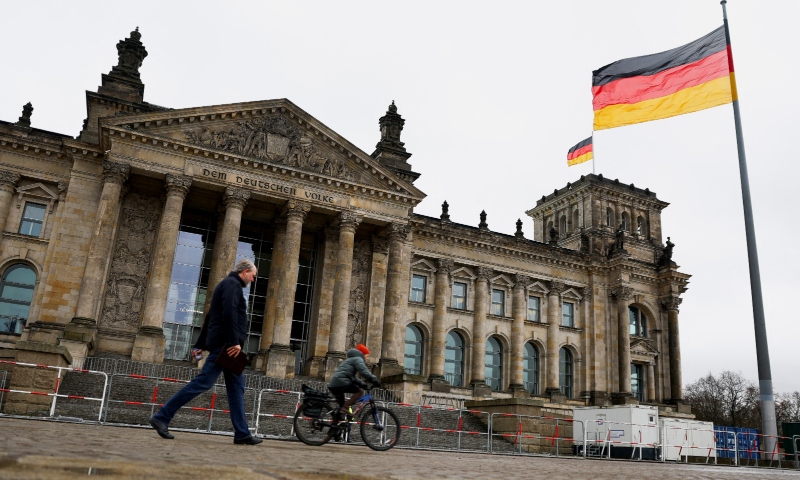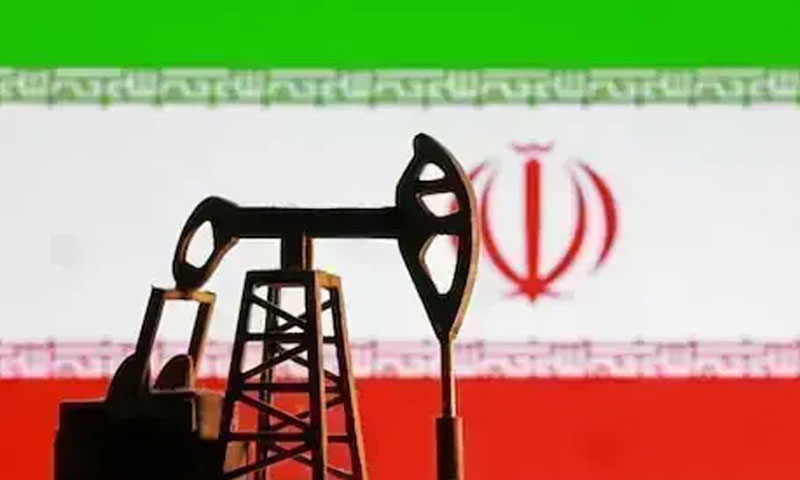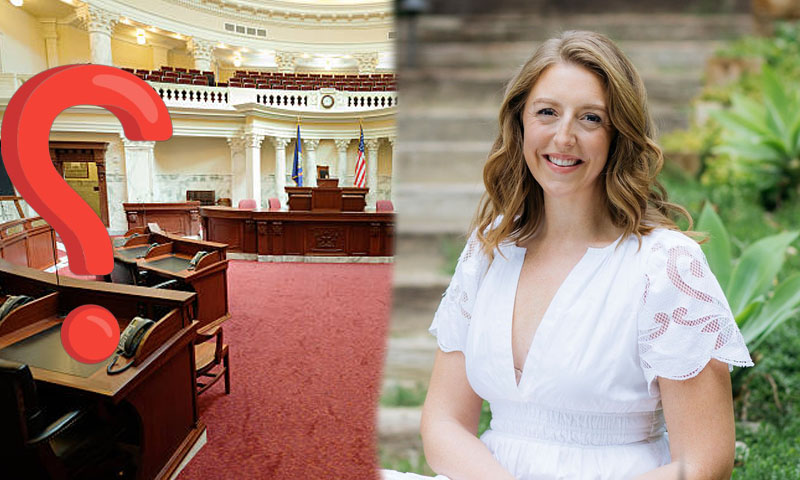- Web
- Mar 02, 2026
Germany’s election in polls, parties and policy debates
-

- Reuters
- Feb 03, 2025

BERLIN: Germany will hold a snap national election on February 23 following the collapse of Chancellor Olaf Scholz’s three-way coalition.
Here are the main parties contending, their poll standings, and the key policy issues:
PARTIES
Germany has two centrist, “big-tent” parties: Scholz’s centre-left Social Democrats (SPD) and the opposition conservatives, an alliance of the Christian Democrats (CDU) and their Bavarian sister party, the Christian Social Union (CSU).
Both have lost support in recent years, with smaller parties such as the Greens and far-right Alternative for Germany (AfD) gaining ground.
The SPD, conservatives, Greens and AfD are all fielding candidates for chancellor.
Also running are the pro-market Free Democrats (FDP), the far-left Linke and the leftist Sahra Wagenknecht Alliance (BSW), who are all at risk of missing the 5 per cent threshold to make it into parliament, according to opinion polls.
POLLS
The conservatives have been leading nationwide polls for more than two years and are at 30 per cent, according to the latest survey published by INSA on Feb 1, followed by the AfD at 22 per cent.
Scholz’s SPD, with 17 per cent, has dropped to third from the first place it achieved in the 2021 election. It is followed by the Greens on 12per cent and the BSW on 6 per cent. The FDP and Linke are both polling at 4per cent.
Analysts say polls can shift quickly, as voters are less loyal to parties than they once were. In the 2021 election campaign, the conservatives went from frontrunner to runner-up within a few months.
The conservatives’ leader, Friedrich Merz, in particular, is considered to be prone to gaffes and quick to anger.
WHAT ARE THE KEY ISSUES?
– Ukraine
Germany’s mainstream parties all favour helping Ukraine fend off Russia’s full-scale invasion, while the AfD and BSW want an end to weapons deliveries to Kyiv and a resumption of good relations with Moscow.
However, Scholz and his SPD have recently struck a more cautious tone – emphasising the need for diplomacy – than the conservatives, Greens and FDP, who are all in favour of Germany delivering long-range Taurus missiles to Kyiv.
– Reviving the economy
Scholz has proposed incentivising private investment and modernising infrastructure with an off-budget, 100-billion-euro fund. His SPD also plans a direct tax refund of 10% on equipment investments by businesses.
The Greens’ Robert Habeck has, like Scholz, called for reform of Germany’s constitutionally enshrined debt brake to allow for higher public spending.
Merz had also signalled some openness to a moderate reform of the debt brake but his party’s manifesto has pledged to retain it. The AfD and the FDP are fierce defenders of the limit on public borrowing.
The CDU/CSU manifesto has proposed extensive financial relief for companies and citizens, including income and corporate tax cuts, and lower electricity charges. They have not said how these would be financed.
The AfD wants Germany to ditch the euro, reintroduce the Deutsche Mark and potentially leave the EU.
– Migration
A slew of violent attacks linked to foreign suspects in Germany have compounded public concerns over security and migration, prompting political parties to demand stricter measures on migration.
After the most recent attack on Jan 22, Merz sponsored a draft bill with AfD support, breaking a taboo against cooperating with the far-right party.
However, he later failed to secure a majority for the bill as some of the deputies from his own party refused to support it.
In general, the conservative CDU has adopted a stricter stance on immigration in recent years, calling for pushing back asylum seekers at the borders, and for limits on family reunifications and naturalisation for refugees.
The anti-Islam, anti-migration AfD has called for borders to be closed and asylum seekers to no longer have the right to family reunification. Some senior AfD members have gone further in their comments and were present at discussions among far-right activists about deporting millions of people of foreign origin, including German citizens.
The SPD itself has toughened its position by enforcing stricter border controls and accelerating deportations, although it also wants to bring in more foreign skilled workers.
In contrast, the Greens maintain a more open asylum policy, promoting state-backed sea rescue initiatives and simplifying family reunification processes and enhancing integration.
– Energy
High energy prices remain a formidable challenge for households and businesses in Germany and an important election campaign topic.
The CDU, SPD and Greens agree on expanding renewable energy to reduce costs but differ on financing approaches: the CDU suggests using higher CO2 certificate revenues to lower network fees, while the SPD and Greens support debt-financed state subsidies. The CDU and AfD also propose assessing a return to nuclear power, an idea rejected by the SPD and Greens.
The AfD opposes renewable energy subsidies entirely, advocating unrestricted coal-fired power plant operations and abolishing CO2 pricing to lower consumer costs and enhance energy security.
– Relations with Trump
The question of how to tackle the new administration of US President Donald Trump, who has already flagged the possibility of increased tariffs and reduced military support for Europe, is particularly sensitive for Germany. The US remains the top destination for German exports and its main security ally.
The SPD’s Scholz has sharply countered Trump’s comments on Greenland and Canada, while conservative frontrunner Merz warned against lecturing him, emphasising instead areas of possible cooperation like a potential EU-U.S. trade deal or joint China strategy.
The Greens’ Habeck warned that the EU must stand united and seek talks with the Trump administration because a trade war will ultimately harm all sides.
All of the mainstream parties have voiced scepticism about Trump’s demand for European countries to increase spending on defence to 5per cent of economic output, given that Germany will already struggle to keep to 2per cent after its special fund for the military runs out. Habeck, however, has already proposed an increase to 3.5per cent.
The German party that has most embraced the Trump administration is the AfD, which received multiple endorsements from Trump’s ally Elon Musk, resulting in his conversation on X with the party’s chancellor candidate Alice Weidel.




